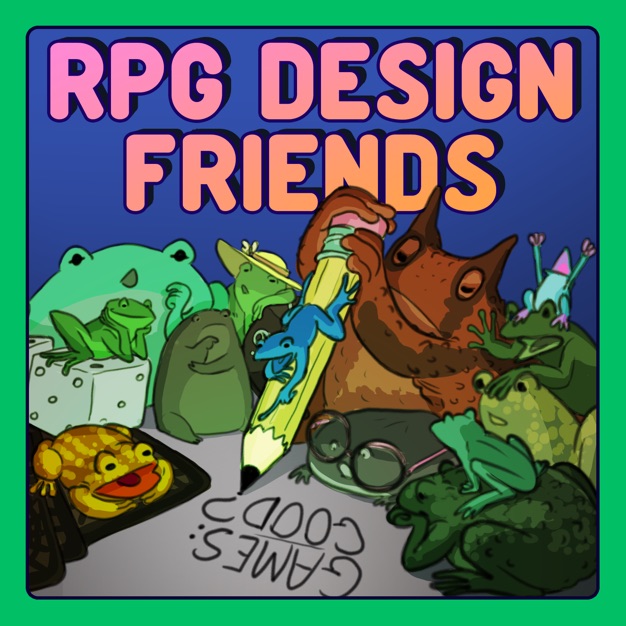
RPG Design Friends - A Critical Tabletop Podcast
Riley Hopkins
Welcome to the RPG Design Friends Podcast, in which we're gonna critically talk about tabletop role-playing games, their mechanics, and our interactions with them. Each episode we have two guests - designers, podcasters, and other experts - to discuss a topic within TTRPGs. It's important to be critical and analyze the stuff we enjoy, and we're glad to be able to do that here at RPG Design Friends!
- 2 minutes 56 secondsS1E11 - Season 1 wrap
Season 1 is done, but Game Mechanics will return!
If you have a suggestion for a future guest, please send it to: [email protected]
Follow Logan on Twitter: @LoganJenkins
Game Mechanics is hosted and supported by The Orange Groves podcast network.
24 June 2020, 7:09 am - 30 minutes 53 secondsS1E10 - Marx Shepherd - No Fascists Allowed
Welcome to Game Mechanics, a show about Tabletop Roleplaying Games from lots of different perspectives. I’m Logan Jenkins. Today, I’m talking to Marx Shepherd, an indy TTRPG creator, and member of the San Jenaro Co-Op, an organization that puts out a quarterly games digest collectively created by all its members. When Marx reached out to me, they were quick to point out that the co-op wears its communist mindset and values on its sleeve. I was interested in finding out how the Co-op works together to create these digests every three months, and how communism factors in. The conversation was incredibly interesting and I can’t wait to share it with you, so let’s get to it!
Follow Logan and Marx on Twitter:
- Logan: @LoganJenkins
- Marx: @IAmPhophos
- San Jenaro Co-op: @sanjenarocoop
Marx's other personal work can be found here:
Also, check out the San Jenaro Co-op's digests:
Game Mechanics is hosted and supported by The Orange Groves podcast network.
17 June 2020, 7:05 am - 24 minutes 30 secondsS1E9 - Rees Bennett - A Drag Nun's Take On Playing a Role
Welcome to Game Mechanics, a show about Tabletop Roleplaying Games from lots of different perspectives. I’m Logan Jenkins.
Today, I’m talking to Rees Bennett, also known as Sister Evelyn Tensions of the Grenville Sisters of Perpetual Indulgence. The Sisters are an order of drag nuns whose entire mission is to increase joy and decrease shame in the world. Rees puts on makeup, jewelry, and the Greenville sisters’ Habit, and transforms into Evelyn multiple times a week. I know Rees IRL, and I know he’s a little hesitant about RPGs in general, and I wanted to know more about that, and about the parallels between playing a character in a game, and playing Evelyn. This is a really different perspective on the hobby than I’ve featured before, and I’m so excited for you to hear it!
A quick note on audio quality: Rees’ mic was picking up some rustling noises (I think from his beard.) I tried to limit that as much as possible, but you will definitely hear some of it. The audio is still totally listenable, just wanted to let you know what that sound was! Alright, let’s get to it!
Follow Logan and Rees:
- Logan: @LoganJenkins
- Rees: Evelyn's Facebook, or The Greenville Sisters' Facebook
Find your closest chapter of The Sisters of Perpetual Indulgence at thesisters.org
Game Mechanics is hosted and supported by The Orange Groves podcast network.
27 May 2020, 7:01 am - 28 minutes 5 secondsS1E8 - Will Uhl - Prolific Game Creation
Welcome to Game Mechanics, a show about Tabletop Roleplaying Games from lots of different perspectives. I’m Logan Jenkins. Today, I’m talking to Will Uhl, a very prolific writer of mostly micro-RPGs… which are exactly what they sound like. Bite-size Roleplaying game concept explorations that only take up a few pages. I was curious to talk to Will about distilling concepts into that small of a space. We talked about advantages, disadvantages, and even the purpose of writing tiny games. I think you’ll really enjoy this conversation, so let’s get to it!
Follow Logan and Will on Twitter:
- Logan: @LoganJenkins
- Will: @RaffiTheOwl
Will’s games can be found at Merry Mancer Games
Game Mechanics is hosted and supported by The Orange Groves podcast network.
13 May 2020, 7:30 am - 45 minutes 29 secondsS1E7 - Greg Leatherman - What if everyone’s a warrior?
Welcome to Game Mechanics, a show about Tabletop Roleplaying Games from lots of different perspectives. I’m Logan Jenkins.
Today, I’m talking to Greg Leatherman, writer of Glitter Hearts, a Magical Girl anime inspired TTRPG. Greg is also one of my co-hosts on Very Random Encounters. We go way back! One thing I really like about interviewing folks from so many backgrounds is the different answers I get from the same questions I ask to each of them. Greg gives some really interesting takes on some of my standard questions that are nearly the exact opposite from some other guests’ responses! Also, wtf is wisdom? Anyway, let’s get to it!
Buy Greg’s game, Glitter Hearts, here!
Everything Classic Marvel Super Heroes RPG can be found here.
Follow Logan and Greg on Twitter:
- Logan: @LoganJenkins
- Name: @WhiteWing
Game Mechanics is hosted and supported by The Orange Groves podcast network.
29 April 2020, 7:01 am - 36 minutes 30 secondsS1E6 - Sean Gomes - Having Dinner on Space Ships
Welcome to Game Mechanics, a show about Tabletop Roleplaying Games from lots of different perspectives. I’m Logan Jenkins.
Today, I’m talking to Sean Gomes, writer of Uncharted Worlds, a Powered by the Apocalypse TTRPG. I am a total Sean Gomes fanboy. There’s a mechanic in UW called “Cramped Quarters;” when the characters are stuck together for a long time (like for space travel) they roll to see whether they had some bad blood, a moment of friendship, or a revelation about a character’s past. I mean it when I say that “Cramped Quarters” has changed the way I play ALL my games. I bring that move to every game I GM, and it succeeds so well at establishing characters as real people with real relationships to their teammates (something I think is sorely lacking in a lot of games.)
Sean’s main gig is as an animator in the video games industry, and it shows in his answers. Lots of very different angles for answers to my questions. I’m so excited to share this conversation with you, so let’s get to it!
Oh! And, weirdly, this conversation took place before quarantine… so we make some references to being trapped inside for weeks as a “what if” scenario… that is of course happening right now to all of us… weird times. Just a heads-up that it comes up.
Follow Logan and today's guest:
- Logan: @LoganJenkins
- Sean can be found on The Gauntlet Forums
Game Mechanics is hosted and supported by The Orange Groves podcast network.
15 April 2020, 7:30 am - 38 minutes 55 secondsS1E5 - Nathan Blades - F*** The Tabletop Police
Welcome to Game Mechanics, a show about Tabletop Roleplaying Games from lots of different perspectives. I’m Logan Jenkins.
Today, I’m talking to Androgynous Android Gameshow Host from the Future, Nathan Blades. I wanted to talk to him about one-page RPGs and games as permission. His one-page RPG Agents of H.U.E. is about queer spies using gadgets to solve very silly mysteries. Basically, a very gay version of Austin Powers. We talk about that, the strength of brevity in RPGs, imposter syndrome as a creator and a DM, saying “f*** the tabletop police,” and way more!
Follow Logan and today's guests on Twitter:
- Logan: @LoganJenkins
- Nathan: @WriterBlades
Game Mechanics is hosted and supported by The Orange Groves podcast network.
1 April 2020, 7:18 am - 26 minutes 9 secondsS1E4 - Bianca Zelda - Chasing baby goats
Welcome to Game Mechanics, a show about Tabletop Roleplaying Games from lots of different perspectives. I’m Logan Jenkins.
Today, I’m talking to Bianca Zelda. Bianca is one of the members of The Broadswords, an all female and nonbinary actual play podcast. Bianca also does a LOT of guest spots on a plethora of other podcasts. I wanted to talk to them about the differences in playing games for yourself and games for public consumption (ie - for podcasts.) They let me know that the key difference is baby goats. If you want to find out what the heck that means, let’s get to it!
Follow Logan and today's guests on Twitter:
- Logan: @LoganJenkins
- Bianca: @BiancaZelda
Game Mechanics is hosted and supported by The Orange Groves podcast network.
16 March 2020, 7:45 am - 42 minutes 5 secondsS1E3 - Sean McCoy - Meeting players where they are
Welcome to Game Mechanics, a show about Tabletop Roleplaying Games from lots of different perspectives. I’m Logan Jenkins.
Today, I’m talking to Sean McCoy. Sean is one of the co-founders of Tuesday Knight Games, and the designer, writer, layout artist, and illustrator of Mothership, a sci-fi horror TTRPG that won the 2019 Ennie for best game! Sean is also lead designer on other Tuesday Knight Games, which makes Sean an expert on both TTRPG and boardgames design. That’s why I wanted to talk to him. I started this conversation thinking it was going to be about the difference between board game and RPG mechanics, but it blossomed into designing games generally, graphic design philosophy for games, remembering that players have brains, and more. It’s not overselling it to say that this conversation changed the way I think about game design. I hope you get some of the same sort of revelations from listening in. Let’s get to it!
Follow Logan and today's guests on Twitter:
- Logan: @LoganJenkins
- Sean: @SeanMcCoy
Game Mechanics is hosted and supported by The Orange Groves podcast network.
2 March 2020, 8:01 am - 31 minutes 49 secondsS1E2 - Jess Ross - Writing for TTRPGs
Today, I’m talking to Jess Ross about her experience writing for RPGs. Jess has written several modules for D&D in places like the Uncaged Anthology, and in Pugmire (a variation of D&D 5th edition where everyone plays as dogs! She wrote for the supplement Morti Corgi’s Scroll of Mysteries, and just everything about that game is adorable.)
We also talk about a problematic aspect of TTRPGs that is somehow still a staple in tons of games. And we discuss Jess’ current work on a neat project called Multiverse which will help adventure writers and players everywhere to share and experience cool stories.
Follow Logan and today's guests on Twitter:
- Logan: @LoganJenkins
- Jess: @WriteJessR
Game Mechanics is hosted and supported by The Orange Groves podcast network.
17 February 2020, 8:00 am - 28 minutes 28 secondsRiley Hopkins - Interstitial and the Link System
Today, I’m talking to Riley Hopkins about their game, Interstitial; a game about worlds colliding in the vein of Kingdom Hearts, Crisis on Infinite Earths, or Into The Spiderverse. Interstitial is available right now at LinksmithGames.com.
Interstitial, like Kingdom Hearts, puts a focus on relationships at the heart of the game. Which brings me to my favorite part of the game, the link system, in which players can make a link with any character in the game to flesh out how the characters feel about each other. The links are one of 4 types: Light if you view the person as a friend, mastery if you think there’s something you can learn from that person, heart if there’s something you can learn about yourself from observing the person, and dark if you view the person as a rival.
The links you make during the game can be spent to gain re-rolls, meaning in order to make success more likely for yourself, you’ll need to make it a priority to make relationships with as many people as you can. That’s why links are my favorite. They bridge the gap between role play and game. I go much more in-depth with this discussion in my talk with Riley.
Follow Logan and today's guests on Twitter:
- Logan: @LoganJenkins
- Riley: @RevRyeBread
Game Mechanics is hosted and supported by The Orange Groves podcast network.
3 February 2020, 3:09 pm - More Episodes? Get the App
Your feedback is valuable to us. Should you encounter any bugs, glitches, lack of functionality or other problems, please email us on [email protected] or join Moon.FM Telegram Group where you can talk directly to the dev team who are happy to answer any queries.
 Game Closet
Game Closet
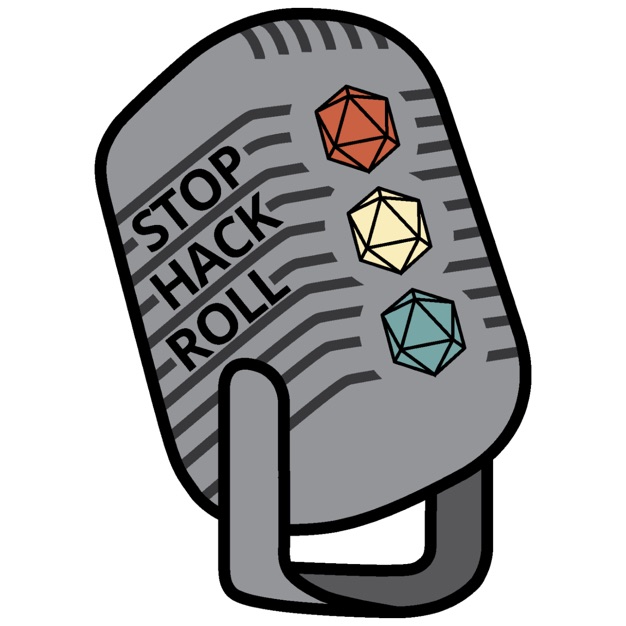 Stop, Hack, and Roll Podcast
Stop, Hack, and Roll Podcast
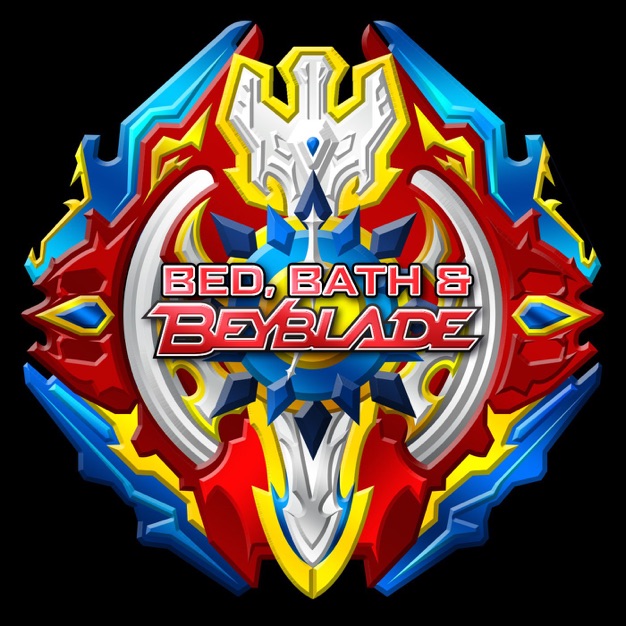 Bed, Bath, and B
Bed, Bath, and B
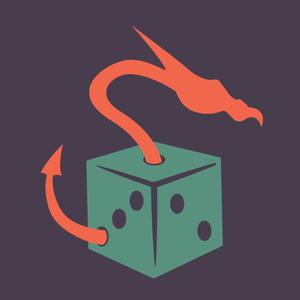 Asians Represent!
Asians Represent!
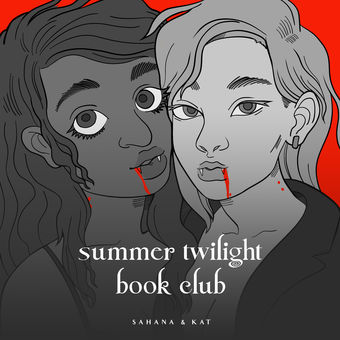 Summer Twilight Book Club
Summer Twilight Book Club
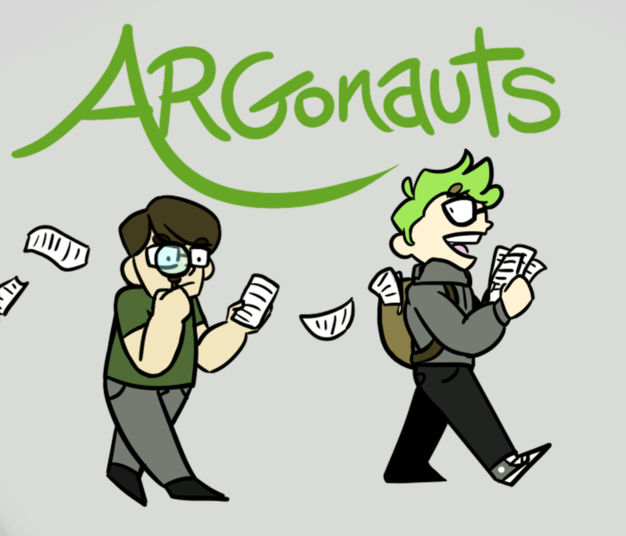 ARGonauts Podcast
ARGonauts Podcast